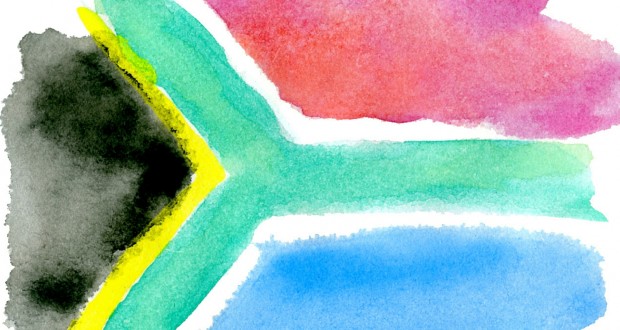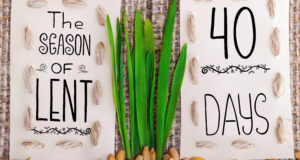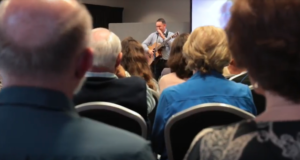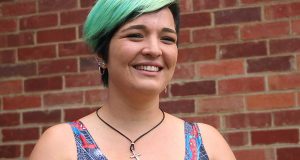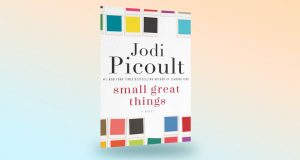White South Africans continue to leave their home country in droves, many unwilling to share their stories as the pain of leaving lingers on. Ashley Thompson talks with three South Africans about how they have been affected by escalating tensions in the post-apartheid nation.
As first-hand observations of race-based university protests fill my Facebook newsfeed with statements like “cloudy with a chance of political instability”—I feel a growing unrest about the political future of my country of birth. South Africa: the rainbow nation, the land of braais and koeksisters, scenic coastal towns and majestic wildlife; the home of extended family and fading childhood friendships. Where have you been and where are you going?
Set alight and pushed from moving trains: news agencies Al Jazeera, the BBC, CNN and The Guardian detail the rising violence against foreign nationals in South Africa.
Nigerians, Somalis and Ethiopians are just some of the North African nationalities who have travelled to South Africa in search of a better life. Instead, the 2.2 million migrants (Africa Check, 2015) are accused by black South African nationalists of spreading diseases, sponging off government services and stealing their jobs. Citizen anger around the undelivered promises of the African National Congress (ANC) is being directed towards these migrants, and racism has once more become a political weapon.
Promise Monareng is a young adult leader at her church, the Barn Christian Fellowship in Johannesburg. She struggles to come to terms with the social and political deterioration of the country she loves.
“At the end of the day it’s dramatic, it’s traumatic, it’s chaotic,” says Promise.
“It’s a very sad admission but if nothing happens, if God doesn’t intervene for us in South Africa, we will be going down.”
A matter of principle
In 1985 Archbishop Desmond Tutu told the Synod in Session via an unprecedented live phone interview, that the best way for Australian Christians to support the end of apartheid was to pray, guard themselves against “disinformation from the South African government” and put pressure on decision-makers.
For over a decade, leaders and members of the Uniting Church in Australia participated in campaigns to boycott South African goods, raise funds for a multi-racial opposition party, and support economic and sporting sanctions aimed at undermining the apartheid system; a system recognised as not dissimilar to how Australia had treated its own Indigenous people.
ANC unmasked
When the first democratic elections were held in South Africa 21 years ago, Australians were among the millions who celebrated the creation of the rainbow nation. But it seems that even in those euphoric days, things were not going according to plan.
Dr Eric Louw is a former ANC member and United Democratic Front (UDF) activist—the organisation instrumental in dismantling apartheid.
“I can tell you the moment I went home and I said to my wife ‘We’re leaving, we’re not staying here anymore’,” says Eric, who is now associate professor at the University of Queensland School of Communication and Arts.
“It was when the Bisho Massacre happened in 1992—I realised black nationalists were going to take over and screw whites over. When I was inside the ANC that’s what I was hearing, it was unambiguous.”
According to Eric, while there was one distinct voice inside the ANC, there was an entirely different one being heard on the outside: Nelson Mandela.
“Mandela never ran the country for five minutes,” says Eric. “No matter what anyone says, everyone in the ANC knows that. From day one Mbeki was ‘president’.”
Thabo Mbeki was South Africa’s second post-apartheid president and oversaw the implementation of Black Economic Empowerment (BEE).
BEE ensured the transfer of wealth and jobs via quotas. Yet while it saw a rapid increase in the black middle class, it failed to address unemployment amongst the unskilled majority of the population, resulting in opportunities for trained professional migrants and consequent xenophobic violence.
Promise says that there is a variety of factors contributing to the desperate and violent outbursts of her countrymen.
“We are putting a blanket on everyone and calling it a race thing and sometimes it’s not even about race—it’s about class, it’s where people find themselves at a time where justice is not practised,” she says.
Packing for Perth
The saying “packing for Perth” is a wry dig at the over 50 000 South African immigrants who have arrived in Australia since the election of Nelson Mandela in 1994 for “fear of a lower standard for living”, as the Sydney Morning Herald suggested in 2008.
Due to strong Methodist ties, Uniting Church congregations across Queensland have continued to be a logical church home for such immigrants.
Rev Marius Kruger, minister at Highfields Community Church near Toowoomba, moved to Queensland ten years ago with the intent to stay for just two years before opportunities changed his young family’s path.
His concern for his home country has sharply increased within the last year as the BEE has started to affect the livelihood of his family back home.
“My family are all in business and they’re finding it harder and harder to do business, especially where involving Black Economic Empowerment.”
Marius believes that many of the issues his South African family face, such as crime and horific murders, are so commonplace “it’s almost impossible for them to have an outside objective view on it”.
As an expatriate, he knows that his options are limited.
“What the church [here] can do is pray and raise awareness internationally because South Africa’s just a sheltered little country and no one really cares,” says Marius.
“It might not be seen on the front pages of newspapers but God is doing some great, life-changing stuff. There are glimpses of hope where people look beyond the racial divide.”
Living in hope
Back on my Facebook feed, the stream of images and comments continues to witness to the impact of black nationalism on the everyday lives of people. For my Christian friends, the gospel imperative to live as beacons of hope still lights the way through the gathering clouds of intolerance.
Promise Monareng sees her country as a place of incredible ministry opportunities, and she is upbeat about the role of the church in demonstrating Kingdom values.
“Here at the Barn we have people from Zimbabwe, people from Mozambique and Zambia and we show them that we’re not promoting this [xenophobia].
“If you could see the amount of foreign Africans coming to our church services in Johannesburg, you could see that they know where protection is, where hope is—it’s definitely in church! There’s hope in community.
“Personally I say Christ is the hope of glory and we need justice according to him because according to him there’s no class, there’s no gender, no colour.”
 JourneyOnline
JourneyOnline
